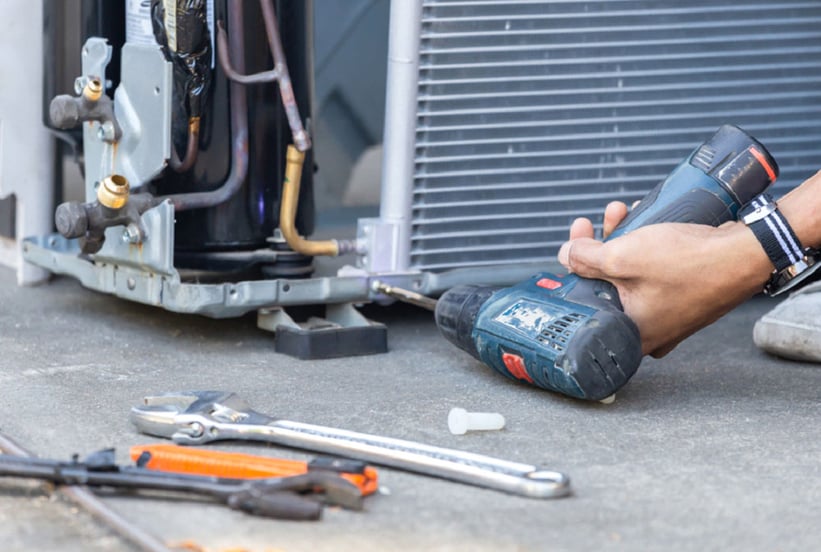Good customer service is a key differentiator in the heating, ventilation, and air conditioning (HVAC) industry. It helps HVAC companies maintain their competitive edge, even in oversaturated markets. In many cases, it contributes to long-term business growth. Discover recommended steps to transform the customer experience for your HVAC business.
Effective Communication
Communication is vital to a thriving business, especially with customer service. Strong internal and external communication not only benefits the customer experience but also the employee experience.
All employees need to be aware of the company’s stance on customer service. What does it look like to have good customer service skills in the HVAC industry and your business in particular? This may involve creating a document with standards to uphold. It will help make everyone clear on how to handle customer service situations.
Development of customer service skills should be ongoing, so check in with team members frequently to spot areas for improvement. Regular training sessions can sharpen employees’ understanding of customer service to continue improving.
On the customer side, HVAC businesses want to offer consistent communication at the right time. This means updating customers regularly about promotions and company news at times they are most likely to engage. Customers also want to communicate with businesses on the channels they prefer, whether phone calls, text messages, or emails.
Of course, you will only know your customers’ communication preferences by asking them. This is why a key component of communication skills is active listening. Send out surveys to solicit feedback and provide opportunities for customers to voice their concerns or ask questions. It will be easier to respond accordingly and improve the customer service experience.

Fast Response Times
Homeowners don’t want to wait long on a hot day for their air conditioner to be repaired or be stuck with a damaged heater during the cold winter months. When HVAC systems break, customers expect an immediate response.
Being punctual is essential in delivering quick response times. HVAC technicians should reach the job site within a tight window of the estimated arrival time. Of course, mishaps occur and can put techs behind. Customers may also make last-minute cancellations or requests. This is where communication comes in again. By coordinating with techs in the field, customer service teams can swiftly reroute the nearest available tech to avoid having customers wait.
Rapid response can be especially helpful with new customers as it provides a good first impression. This gives HVAC companies a competitive advantage, which helps with customer retention and, ultimately, profitability.
Personalization
Almost all HVAC sales begin with the first service call or request, but HVAC businesses can personalize customer experiences from there. Personalization shows the company values each customer’s preferences and is committed to interacting with them how they prefer.
As mentioned, asking for feedback is a great way to discover preferences. Customer service representatives (CSRs) can also leverage tools like customer relationship management (CRM) software to gain more insight for personalization. Customer satisfaction increases the more people feel services are tailored to their needs and wants.
A specific way to personalize service is by offering flexible scheduling. The traditional way to schedule an appointment is a phone call, but some customers prefer scheduling themselves online. You can accomplish this through a 24/7, user-friendly scheduling system that’s easy to find on your website. Such a system will also free up time that customer service specialists might otherwise spend answering service calls.
Simplified Estimating, Quoting, and Invoicing
A challenge unique to field service businesses is cost estimation and payment. Traditionally, when HVAC technicians complete a job, they would need to send information about parts and labor to estimators at the office. Estimators would calculate costs to provide a precise estimate. In some cases, this process could take days or weeks, which is frustrating for customers who want to know what they owe quickly.
HVAC contractors can leverage different tools to simplify estimating and quoting. For example, field service management (FSM) software enables techs to generate accurate quotes and invoices in person, eliminating back and forth with office staff.
Similarly, FSM software can reduce confusion about pricing with pricebooks that update frequently. Customers receive in-depth and transparent information about prices and warranties from techs and can have peace of mind understanding their costs.
A Winning Website
Your website is the foundation of your online presence. The best websites offer key information about your HVAC business and answer frequently asked questions about services. Every page should have opportunities to take further action, such as contacting a customer service representative. It will provide reviews from current and past customers for social proof and enable easy, online appointment booking.
Membership Programs
One challenge many in the HVAC industry experience is securing year-round work, especially for small residential contractors. Customer loyalty programs, like memberships, offer a solution that also boosts the customer experience. It helps retain customers long-term by providing promotions and discounts for those who enroll. Through quote-building software, techs can show new customers the cost-saving benefits of becoming a member. They can highlight the difference between member and non-member pricing.
Loyalty programs also turn customers into advocates for your company. For example, you might offer a promotion for customers who reach a certain number of referrals. In this way, these programs boost customer satisfaction while increasing reach.
Partner With Sera to Enhance HVAC Customer Service
Increase your competitive edge within the HVAC industry and generate business growth by maintaining excellent customer service skills. HVAC contractors have a range of tools at their disposal to improve customer service, including FSM software.
At Sera, we offer HVAC software designed specifically for small and medium-sized residential contractors. Use our software to reduce inefficiencies and streamline tasks like scheduling, dispatching, and invoicing. We also have a dedicated customer support team that will guide you through any issues you may encounter with implementation.
View our demo now to learn more about our HVAC service software.